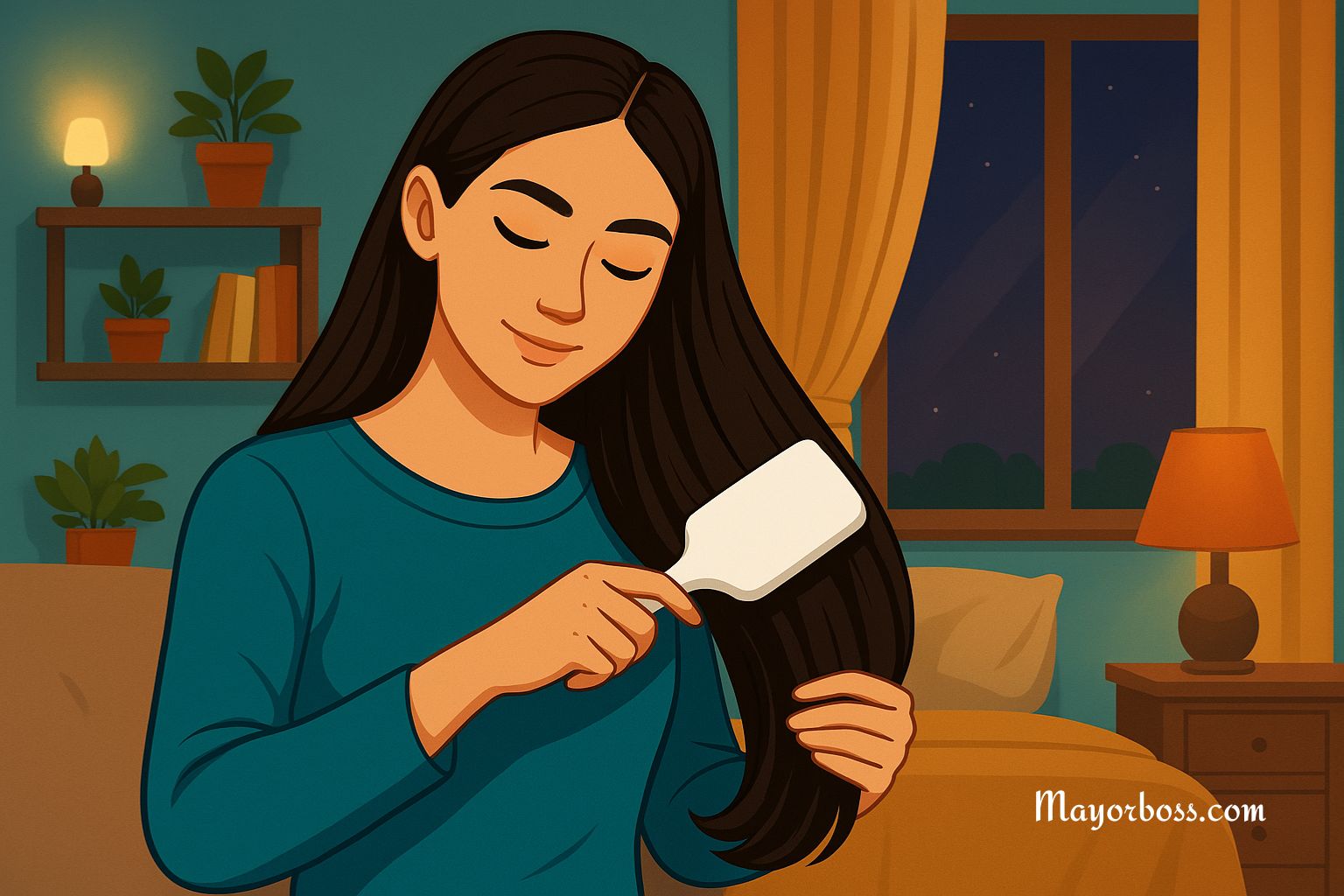Why You Should Comb Your Hair Before Bed: 6 Surprising Health Benefits
Most of us brush our hair in the morning, but what about at night? Combing your hair before bed might seem like a small habit, but it can actually support your overall health. It’s more than just a way to untangle knots—it can improve scalp health, reduce stress, and even promote better sleep. Here are six health benefits of combing your hair before going to bed.

1. Improves Blood Circulation in the Scalp
When you gently comb your hair at night, you stimulate the skin on your scalp. This boosts blood flow to the hair follicles. Increased circulation brings more oxygen and nutrients to the scalp, which supports healthy hair growth.
Think of it as giving your scalp a mini-massage. Over time, this can strengthen hair roots and help reduce hair thinning or shedding. Better circulation also helps keep the scalp skin healthy, which may lower the risk of dandruff and dryness.
2. Distributes Natural Oils Evenly
Your scalp naturally produces oil called sebum. This oil protects your hair and keeps it moisturized. However, throughout the day, sebum tends to collect on the scalp.
Combing your hair before bed helps spread these natural oils from the scalp down to the ends of your hair. This keeps your strands hydrated, smooth, and shiny. It also prevents oil buildup at the roots, which can make hair feel greasy and attract dirt.
When your hair is well-moisturized, it’s less likely to break or become brittle.
3. Reduces Hair Breakage and Tangles
Going to bed with tangled hair can lead to breakage, especially if you toss and turn in your sleep. Hair strands that rub against the pillow can weaken and snap, especially if they’re already knotted.
Combing your hair gently before sleep removes tangles and smooths the strands. This reduces friction and protects the hair from damage during the night. It also makes your hair easier to manage in the morning, saving you time and effort.
For best results, use a wide-toothed comb and avoid pulling too hard, especially if your hair is dry or fragile.
4. Helps You Relax Before Sleep
Combing your hair can have a calming effect, especially when done slowly and mindfully. The gentle movement over the scalp sends signals to the brain that help you relax.
This calming routine can help ease stress and tension built up during the day. It becomes a simple form of self-care that signals your body that it’s time to wind down. Many people find it similar to the comfort of a warm bath or a quiet moment with a book.
Adding this habit to your nighttime routine may help you fall asleep more easily.
5. Supports Scalp Hygiene
Your scalp collects dust, sweat, and product buildup during the day. While washing your hair removes these substances, combing at night can also help loosen debris and dead skin cells.
This gentle action supports a cleaner scalp environment, which may prevent issues like clogged pores, scalp acne, and itchiness. It’s especially helpful for people who don’t wash their hair every day but still want to maintain good scalp hygiene.
If you use hair products like gels or sprays, combing also helps to break up any buildup and prevent it from collecting at the roots.
6. May Stimulate Hair Growth Over Time
While combing alone won’t make your hair grow overnight, it does support the conditions that allow hair to grow better. As mentioned earlier, improved blood flow and oil distribution keep the scalp and hair healthy. A clean, well-nourished scalp is more likely to grow strong, healthy hair.
Also, regular gentle combing helps remove weak hairs that are ready to fall out, making room for new growth. This natural shedding process is healthy and necessary for your hair’s renewal cycle.
Keep in mind that excessive or rough brushing can damage hair. The key is to be gentle and consistent.
Final Thoughts
Combing your hair before bed is more than just grooming—it’s a small act of care that supports your health. It helps with blood circulation, distributes natural oils, reduces breakage, calms the mind, and keeps your scalp clean.
You don’t need to spend much time. Just a few minutes of gentle combing can be helpful. Choose a soft-bristled brush or wide-toothed comb, and avoid tugging or brushing too hard.
